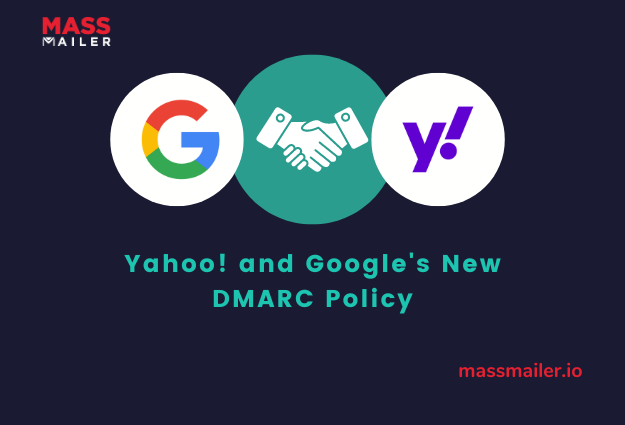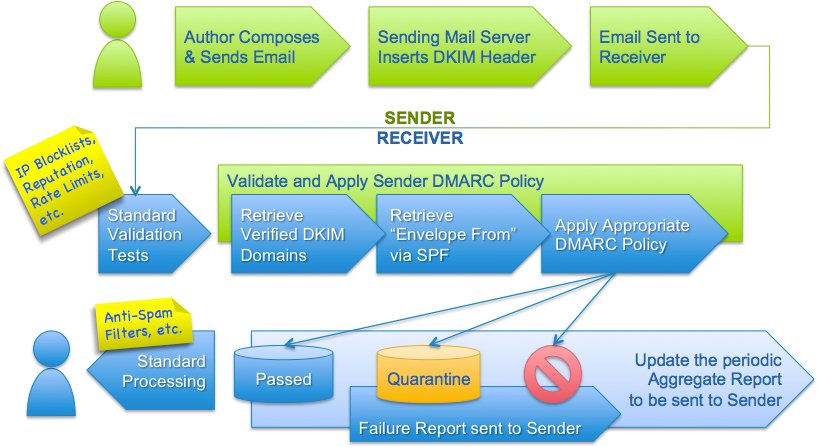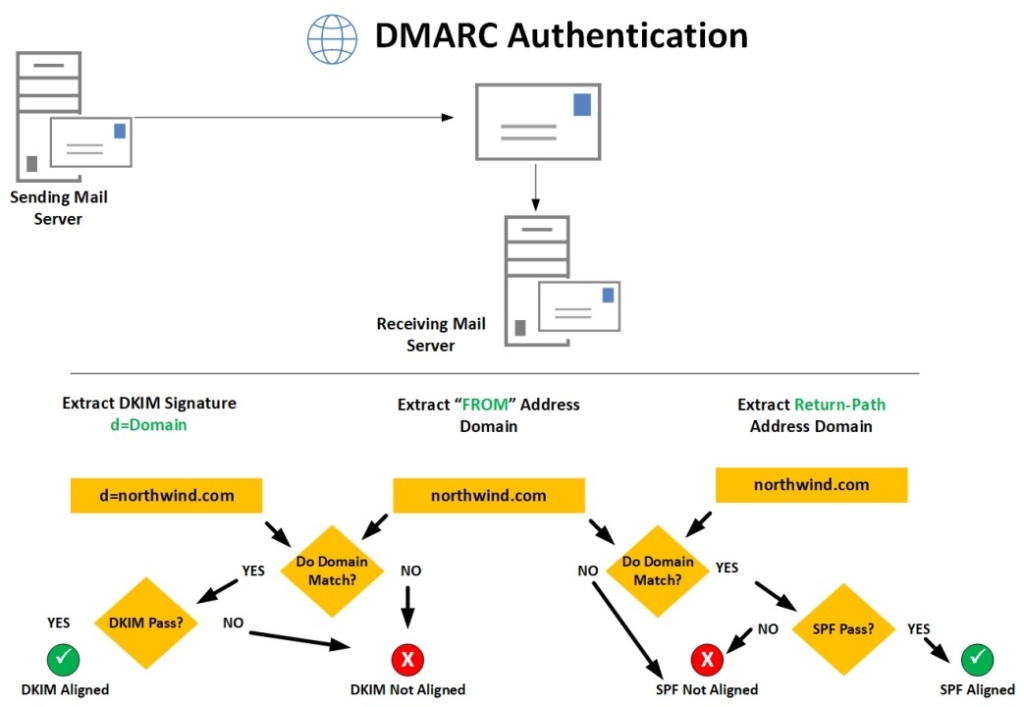Table of Contents
In today’s digitally driven landscape, email security and deliverability are among the top concerns for organizations. Google and Yahoo- two of the leading email giants- recognize the importance of email for businesses and are taking necessary steps toward making it more safe and secure.

The recent updates from Yahoo and Google’s new DMARC policy are an important step in this direction.
Google and Yahoo announced various requirements such as Domain-based Message Authentication, Reporting, and Conformance or DMARC policy in place for bulk senders beginning February 2024.
In this post, we will dive deeper into the new requirements set by these email giants and learn more about DMARC.
What Are the Specific DMARC Requirements for Gmail And Yahoo?
The recently released email guidelines by Google states multiple conditions for email authentication starting Feb 2024. This will require all domain owners sending bulk or over 5k emails a day to Gmail addresses to authenticate their email addresses with DMARC policy.
This means that all emails sent must pass DMARC alignment or align with either the DKIM or SPF standards (discussed in the later section). The change is primarily aimed at improving email security and reducing spam.
Likewise, Yahoo also described its key objective as offering a hassle-free and optimal experience for email receivers to ensure that they only get relevant and useful messages. To be able to fulfill this requirement, recent email guidelines by Yahoo states that in 2024, all senders of bulk messages (over 5k) should deploy and follow DMARC.
In addition, it also states that email senders should implement several other features, such as unsubscription in single click and only sending of emails that are valuable to users.
What is DMARC Policy by Google and It’s Importance?

DMARC is primarily an email authentication policy and reporting protocol. It leverages SPF/Sender Policy Framework and DMIK records/DomainKeys to add a connection to the domain name for managing authentication and reporting from receivers to senders.
Put simply, DMARC is an email authentication protocol that is specifically designed to give email domain owners the ability to protect their domain from any kind of unauthorized use, also known as email spoofing.
New Yahoo and Gmail Email Requirements
The new requirements from Yahoo and Gmail can be divided into two broad categories. While all email senders will need to follow the first set, there are additional rules based on the number of emails you send per day.
Requirements Applicable to All Senders
Here are the new Yahoo and Gmail requirements that apply to all senders-
-
Email Authentication
This is one of the most critical measures to help prevent malicious actors from sending unnecessary emails claiming to be from your organization. The process is called email spoofing, and it allows cybercriminals to send harmful domains for dangerous cyberattacks.
Among other email authentication best practices mentioned by Gmail for all senders are:
- The format of email messages you sent must be in accordance to IMF specifications as described under RFC 5322.
- The spam rate of email messages you send must be below 0.3% (Google suggests usinf Google Postmaster tools to check this number).
- The sender’s domain “From:” header must be matching with the domain in the DKIM signature header
Read about these requirements in more detail here in this Google document.
New Yahoo and Gmail Requirements for Bulk Senders
These requirements apply to domain owners who send bulk messages (over 5,000 emails a day).
1. SPF and DKIM
The first requirement is that companies that send emails to Gmail or Yahoo implement SPF (Sender Policy Framework) and DKIM (DomainKeys Identified Email) authentication methods.
2. DMARC Policy
As per the new requirements, companies must also have a DMARC verification policy in place. DMARC is essentially an email authentication standard that offers domain-level protection of the email channel.
This authentication method helps detect and prevent various email spoofing techniques used in phishing, business email compromise (BEC), and other similar email-based attacks.
Highlights of DMARC policy are:

DMARC is built on the existing standards of Sender Policy Framework (SPF) and DomainKeys Identified Mail (DKIM).
b. The domain owner can publish a DMARC record in the Domain Name System (DNS) and can create a policy to tell receivers what to do with emails that fail authentication.
3. One-Click Unsubscription
Google and Yahoo have also declared one-click unsubscription a main requirement for users sending bulk emails. This policy states that email users should be given the option of unsubscribing from receiving emails from a specific sender with one click. This will allow email receivers the choice of opting out from receiving unwanted messages from unknown senders.
Benefits of Implementing DMARC

Beyond compliance with the evolving email landscape, implementing a DMARC policy offers several other advantages for businesses. Among these are:
-
Better Email Deliverability
DMARC ensures that only legitimate emails reach the intended recipients, thus improving overall campaign performance and customer engagement.
-
Improved Inbox Placement
Gmail and Yahoo reward senders with strong authentication protocols in place. This could lead to better inbox placement for your emails.
-
Brand Protection
DMARC policy helps you safeguard your brand reputation by preventing email spoofing attempts that could otherwise mislead customers and damage trust
In Conclusion
The new DMARC policy and requirements by Yahoo and Gmail mark a significant step towards a more safe and secure email ecosystem. Developing a thorough understanding of how to set up DMARC requirements and DMARC records and implementing them appropriately can allow your organization to not only comply with these new standards but also enhance its overall email security standards.
About MassMailer
MassMailer is a robust email marketing solution that offers companies an easy way to improve their outreach to customers using bulk emails. The highlight of MassMailer is that you can integrated it easily within your Salesforce org environment and access it from the same dashboard.

